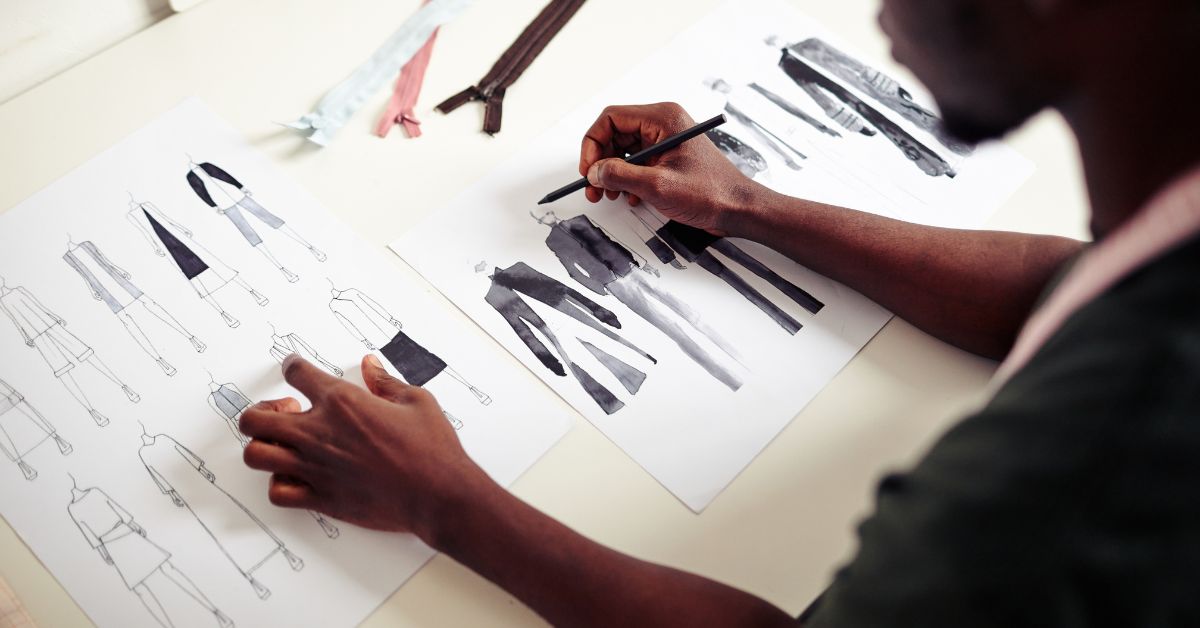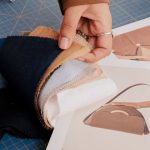What is a fashion designing course? A fashion designing course teaches you to design accessories, clothing, and footwear, emphasizing design, creativity, and trends. Fashion design plays a crucial role in today’s industry, forming aesthetics, shaping customer choices, and influencing world trends. With the correct set of skills, you can experience various fashion designer benefits, like innovative freedom and dynamic career opportunities in this booking industry.
In this article, we will explore various types of fashion designing courses, get information on fashion designing courses, and find out if fashion designing is a good career for you. So, let’s delve into this topic and learn about fashion designing courses and how they can benefit you to build a lucrative career for yourself.
Table of Contents:
- What is Fashion Designing Course?
- Types of Fashion Designing Courses
- Eligibility Criteria and Admission Process
- Benefits of Fashion Designing Courses
- Career Opportunities Post Fashion Designing Course
- Challenges in the Fashion Industry
- Conclusion
What is Fashion Designing Course?
Types of Fashion Designing Courses
Eligibility Criteria and Admission Process
To pursue a fashion designing course you need to meet some qualifications.
Eligibility for Degree Courses: To get into a degree program like B.Des. or B.Sc., you must have passed out the 12th grade with the minimum percentage needed. Some schools also accept students with a background in science or arts.
Eligibility for Diploma and Certificate Courses: For courses like diplomas and certificates, many institutes want students to have completed their 12th grade, while some might accept students who have passed the 10th grade.
Common Entrance Exams and Portfolio Requirements
There are several top fashion schools that would want you to take an entrance exam to assess your skills and creativity. Some of these entrance exams are as follows:
- NID DAT (National Institute of Design – Design Aptitude Test)
- UCEED (Undergraduate Common Entrance Exam for Design)
- NIFT Entrance Exam (National Institute of Fashion Technology)
Some colleges would also ask for your portfolio to be submitted to them which shows your design work, creative projects, and sketches in order to pass the entrance exam. This allows the college to understand your artistic skills and passion for the art.
Benefits of Fashion Designing Courses
- Enhances Creativity and Technical Skills
- Industry-Relevant Knowledge
- Hands-on Experience
- Building Industry Connections
- Internship and Placement Opportunities
- Exposure to Fashion Events and Shows
Enhances Creativity and Technical Skills
Industry-Relevant Knowledge
Hands-on Experience
Building Industry Connections
Internship and Placement Opportunities
Exposure to Fashion Events and Shows
Career Opportunities Post Fashion Designing Course
Let’s explore some career opportunities post a fashion designing course:
- Fashion Designer
- Fashion Merchandiser
- Textile Designer
- Fashion Illustrator
- Fashion Stylist
- Costume Designer
- Fashion Buyer
- Fashion Consultant
Fashion Designer
Fashion designers make original garments, footwear, and accessories. Through working with brands or starting their own business, they sketch designs, choose the best fabrics, and supervise the production to bring creative ideas to reality.
Fashion Merchandiser
Fashion merchandisers watch over market trends, predict demand, and take care of product displays. They make sure that the correct fashion product reaches customers on time, partnering with both retailers and designers.
Textile Designer
Textile designers are professionals who create patterns for clothing used in fashion and home décor. They concentrate on visual and tactile aspects of fabrics, using creative skills to design prints that can be produced on a large scale.
Fashion Illustrator
Fashion illustrators are professionals in sketching fashion designs and ideas. They work closely with designers or brands to visually show collections, make illustrations for advertising, marketing, or design inspiration.
Fashion Stylist
A fashion stylist selects clothing and styles for fashion shows, photoshoots, or individual clients. They make sure that outfits, makeup, and accessories go with the ideal look and event, working with design professionals.
Costume Designer
Costume designers work towards creating outfits for TV shows, movies, and theatre productions. They partner with producers and directors to make sure that the costumes align with the characters, environment, and historical era.
Fashion Buyer
Fashion buyers choose and buy garments and accessories for retail stores. They are supposed to know about all the market trends and consumer references, making sure that the stores are stocked with trendy clothing and are profitable.
Fashion Consultant
A fashion consultant provides guidance on trends, styles, and clothing choices to people or companies. They work with individuals on personal styling or guide brands on upcoming trends and development of the product.
Each of these career prospects offers great opportunities to experience different sectors of the fashion industry, enabling you to apply your knowledge and skills in innovative and beneficial ways.
Challenges in the Fashion Industry
Competitive Landscape
The Importance of Staying Updated with Fashion Trends
Conclusion
Fashion designing is a great career choice for creative individuals who love expressing their ideas through fashion. With the right information about fashion designing courses, you can gain the skills needed to succeed in this industry. It offers exciting job opportunities, hands-on experience, and the chance to stay updated with the latest trends, making it a fulfilling and rewarding career path.
























